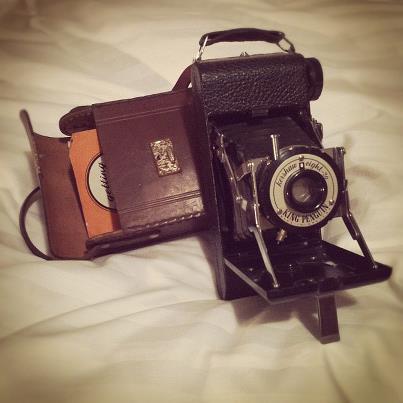
My uncle gave me his childhood camera tonight. +1 for the shelf, it seems to function properly and takes 120 film.
Just a personal blog, kept since 2008.
Photo type posts were originally posted to Tumblr as this type so that the image would be prominent on the platform. These posts may or may not be primarily about that photo.

My uncle gave me his childhood camera tonight. +1 for the shelf, it seems to function properly and takes 120 film.
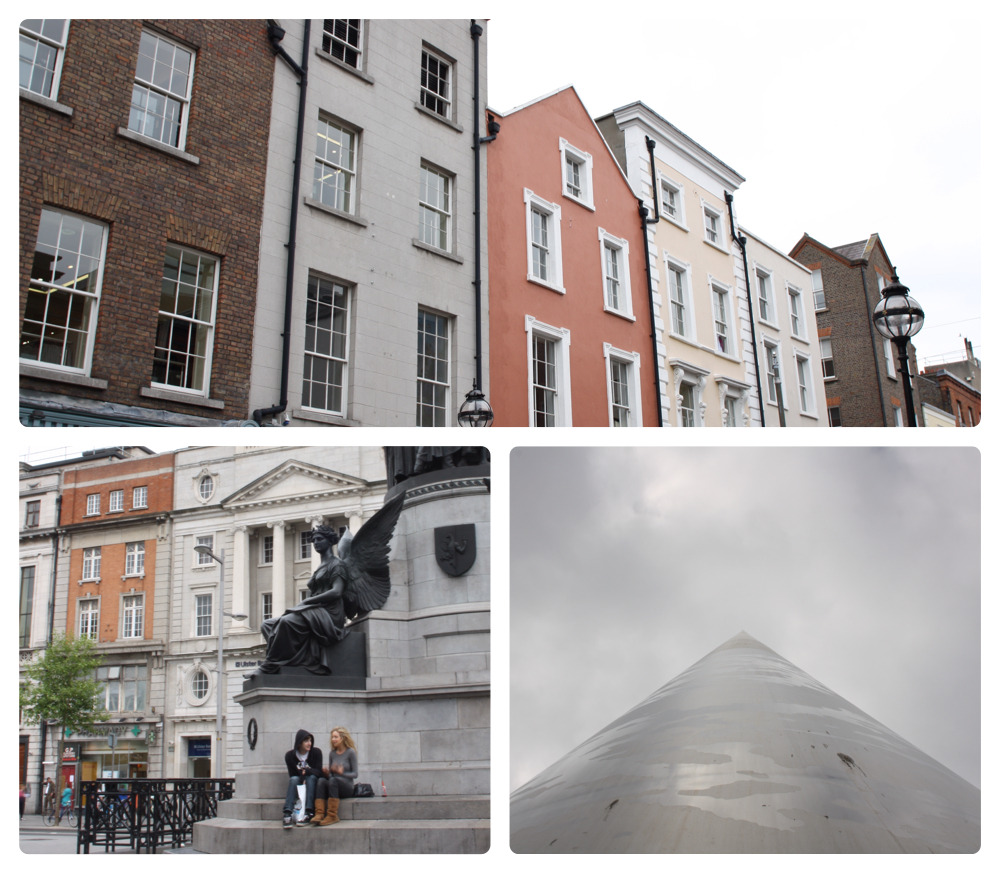
This is what Dublin looks like today.
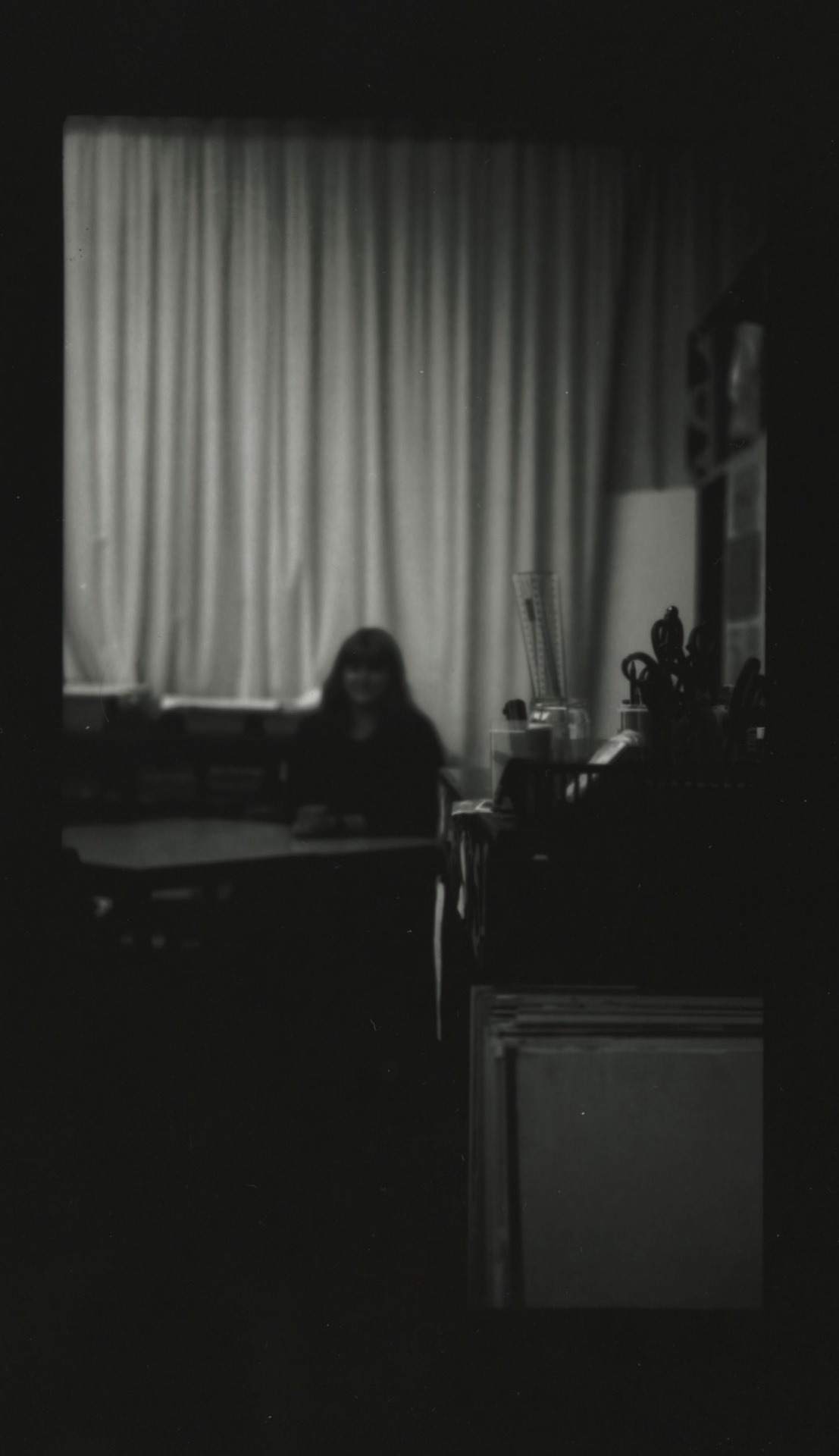
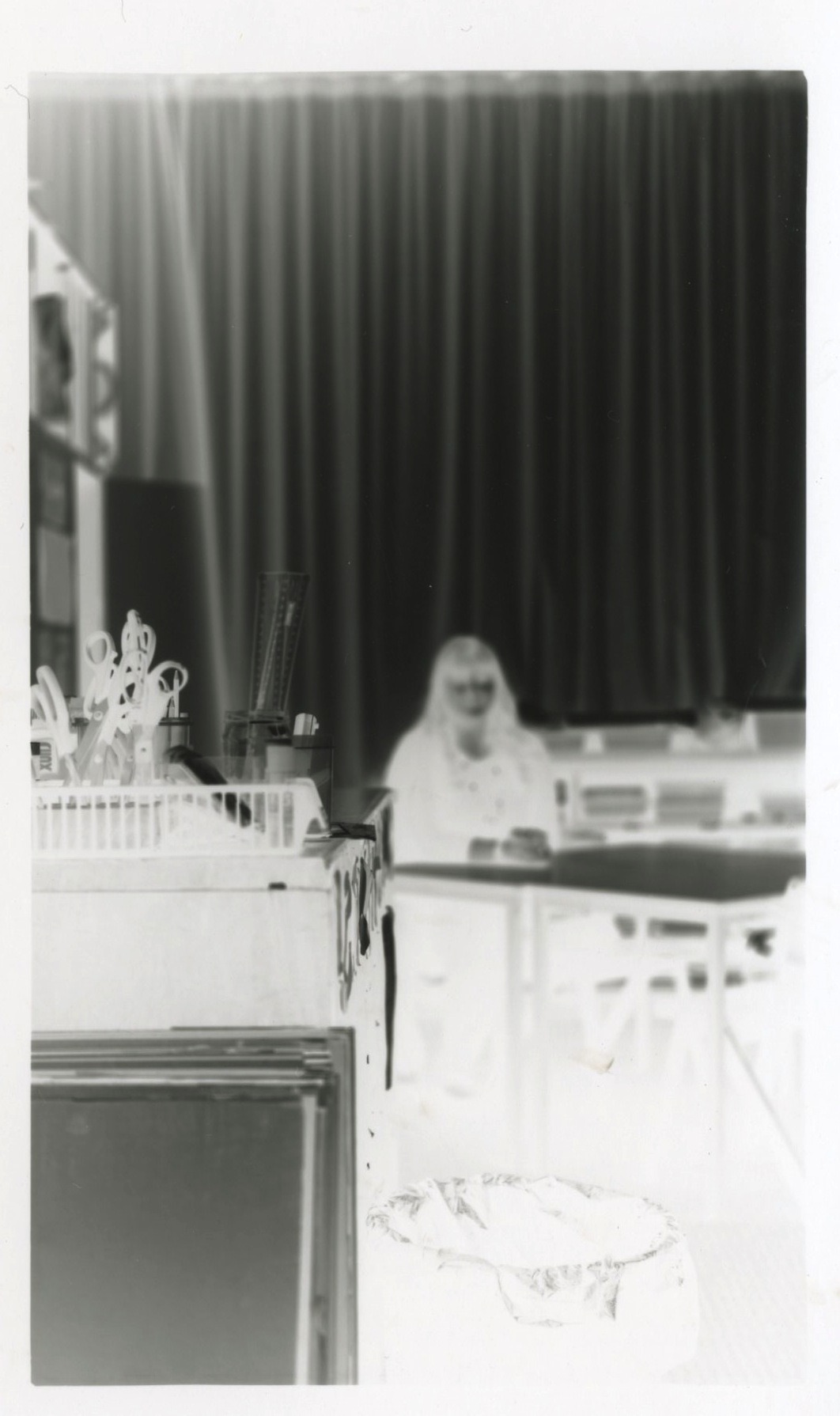
Selwyn College’s Community Education courses include “Photography and the Darkroom”, so I’ve spent the last five Monday nights there making picture magic.
This week, I took along the 3A Autographic Kodak Special. I’ve worked out how the camera functions, and that the shutter speed and aperture settings do seem to work (though I haven’t measured precisely).
My teacher and I took some pictures with photo sensitive paper which I cut down to size and taped inside the camera in the darkroom. Using the rangefinder, we took a stab at focus, and took a 5 second exposure at f6.3 (I think)… Nothing. Doubling the exposure time yielded results, the negative image above is what comes out of the camera when the paper is developed.
Then, by using the negative for a contact print we get the positive. “In person” the scissors and ruler on the table are super sharp, I was delighted.
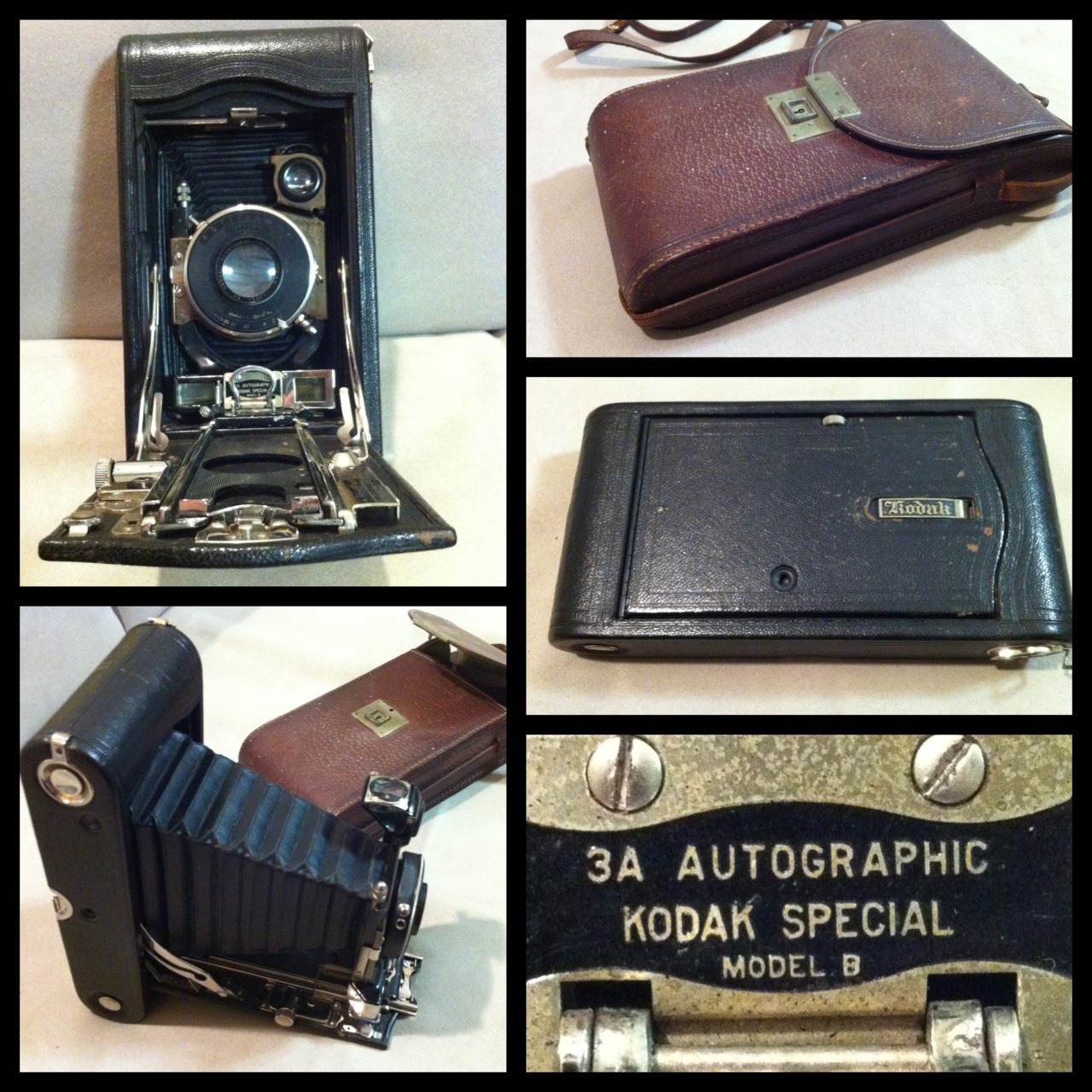
This picture machine has been in my dad’s garage for at least 30 years, he can’t remember how it came to him, but now it’s come to me.
It’s a 3A Autographic Kodak Special Model B. Kodak’s first rangefinder camera, the “Autographic” means that when Autographic film was used with it, the photographer could open a window in the back of the camera to make notes with a special stylus on the red, lightproof backing paper. This would deteriorate the paper enough that the writing could then be exposed onto the film by a 3-10 second exposure to light. This writing was then visible in the resulting negatives and prints.
I believe it’s about a century old, it has a little muck in the lens but the camera is largely in brilliant condition. It takes 122 film, but I think I can probably expose a roll of 120 through it with some fiddling. Failing that, photosensitive paper could catch a negative image to be inverted.
Also brilliant discovery: the camera manual.